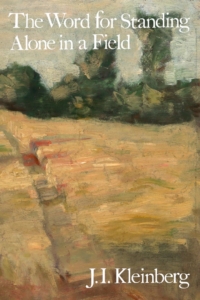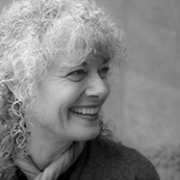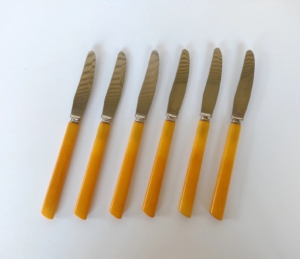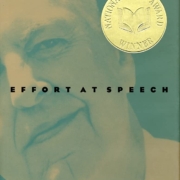J. I. Kleinberg, THE WORD FOR STANDING ALONE IN A FIELD
THE WORD FOR STANDING ALONE IN A FIELD, J. I. Kleinberg. Bottlecap Press, 2023, 32 pages, $10, https://bottlecap.press.
I have been a follower of J. I. (Judy) Kleinberg, Bellingham poet, artist, and blogger for a number of years. If you have  not already subscribed to her near-daily blog The Poetry Department, you must do so immediately. You’ll find there all sorts of poetry-centric announcements—for readings both local and world-wide, for book and journal recommendations, for great quotes, and more.
not already subscribed to her near-daily blog The Poetry Department, you must do so immediately. You’ll find there all sorts of poetry-centric announcements—for readings both local and world-wide, for book and journal recommendations, for great quotes, and more.
Kleinberg posts her own artfully collaged, found poems at her personal blog, Chocolate Is a Verb, and this, too, I recommend.
What a delight to have not one but three collections of poetry by Kleinberg released to the wild in 2023. (I am breathlessly awaiting a full-length collection.)
In The Word for Standing Alone in a Field every poem brings to life a scarecrow—part Dorothy’s Scarecrow from The Wizard of Oz; partly an actual scarecrow, hung in a corn field, immobile, abandoned; partly dark witness to the world. I want to write to “the world on fire.” We meet him, and get to know him through the voice of a girl, who seems to me beyond lonely. But, once she has her scarecrow, she becomes his friend and amanuensis, and through her we learn the scarecrow’s secrets, and through him we glimpse her secrets.
I don’t want to tell you too much. She holds the scarecrow when he weeps. She observes how his “shadow / stretches across the tasseled corn, / a long scarf pulled in hour by hour / until it’s hidden beneath the circle / of his hat” (“Shadow”), and how she finds him, and the crows, and more, as “We all kneel together // in the church of corn.” (“Alike”).
Any of these 28 poems would be a good choice to share. Some are imagist, some paint a larger picture: “Oh scarecrow, faded effigy, straw man, / what can you tell us…” (“Effigy”). Every one of them shot right through me.
Stranger
Indoors and in doorways,
the scarecrow is a stranger.His roof is blue or gray or black,
fastened by stars. His carpetthe color of seasons—green,
gold, brown, green again—but his feet in his boots
never touch down, suspendedin a wilted crucifixion,
arms flung, eyes turnedto the girl in the doorway.
—J. I. Kleinberg
Kleinberg is an award-winning poet and has published widely. To learn more about her, find her at Poets & Writers: https://www.pw.org/directory/writers/ji_kleinberg.
Or read the lovely overiew at her author page at Bottlecap Press: https://bottlecap.press/products/field?keyword=standing%20alone.
And you can visit her guest blogpost (with examples of her poems!) at The Recovering Words: https://www.recoveringwords.com/site/poetry-and-paper-magic-with-found-text-guest-poetry-blog-24-introducing-the-latest-contributor-american-artist-poet-and-freelance-writer-j-i-kleinberg-part-one-of-two.
Such a treat!





